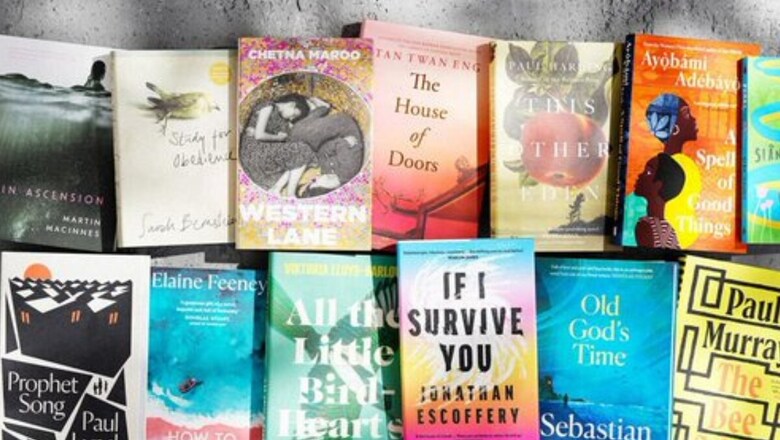
views
Booker Prize website calls this year’s shortlist of six novels ‘vibrant and electric’ while as per The New York Times, the shortlist reflects the ‘unease of our moment’. As per Esi Edugyan, who chaired this year’s judges panel, the shortlisted books “showcase the breadth of what world literature can do”. To me, this year’s shortlist is a collection of rare gems, probably the best which I have known.
On September 22, 2023, the shortlist of six novels for the prestigious 2023 Booker Prize was announced during an event at the National Portrait Gallery in London. This year’s longlist of 13 novels — The Booker Dozen — was announced on August 1, 2023. The winner of the £50,000 ‘Booker Prize for 2023’ will be announced at an event at Old Billingsgate, London on November 26, 2023.
This Short List is a Collection of Rare Gems
Books which have made the cut for the shortlist are — ‘Study for Obedience’ by Sarah Bernstein, ‘If I Survive You’ by Jonathan Escoffery, ‘This Other Eden’ by Paul Harding, ‘Prophet Song’ by Paul Lynch and ‘Western Lane’ by Chetna Maroo.
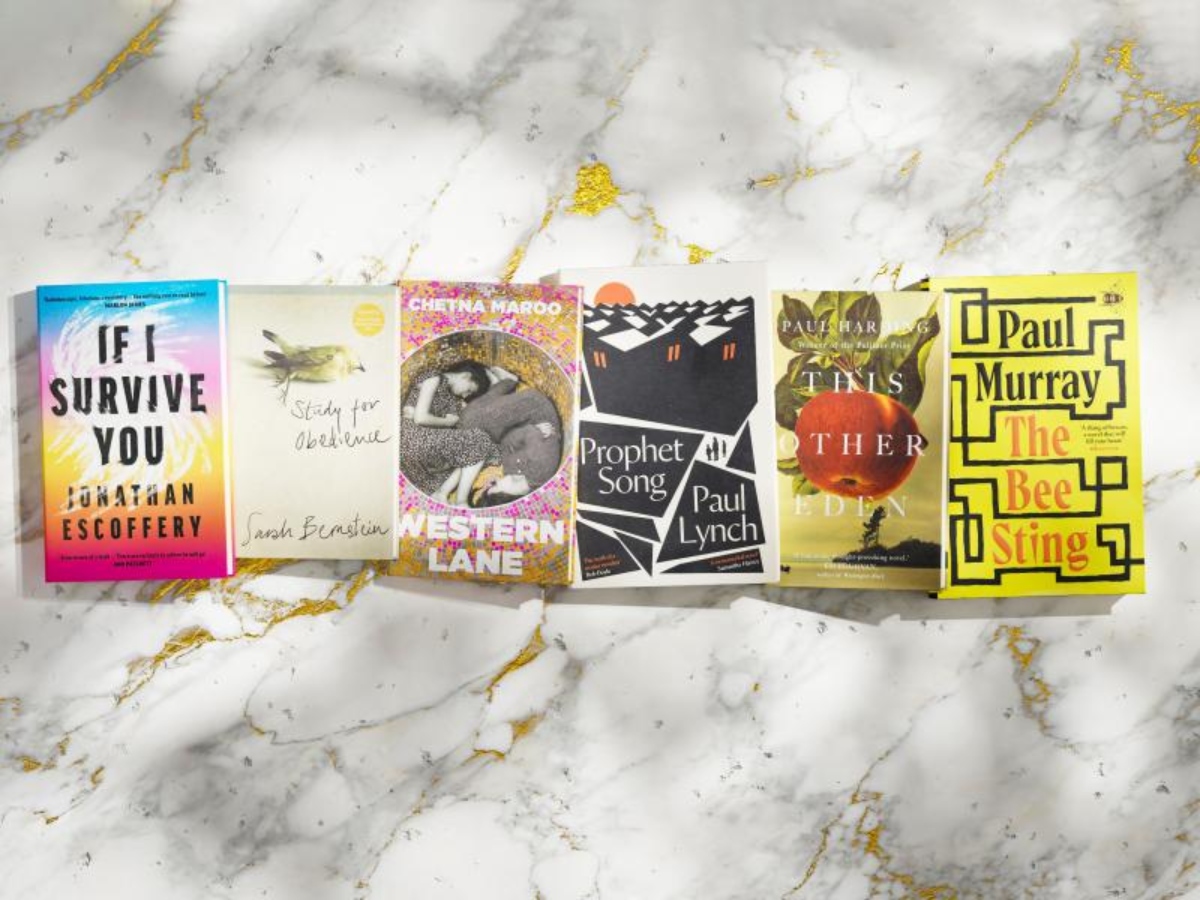
On September 17, in my piece ‘From Long List to Short List to the Prize, It’s Booker Time!’, I had shortlisted six books and I feel blessed that three (Western Lane, If I Survive You and This Other Eden) have made the cut for this year’s shortlist.
Authors Who Made the Shortlist
The most notable aspect of this year’s six shortlisted authors is that none of them have previously been shortlisted for the Booker Prize. There are two women in the shortlist dominated by males — Canadian author Sarah Bernstein and Indian-origin Chetna Maroo. Two of the novelists are debut Chetna Maroo and Jonathan Escoffery (American of Jamaican origin). Both Chetna and Jonathan have earlier received The Paris Review’s prestigious Plimpton Prize for Fiction. Of the other three novelists, two are Irish (Paul Lynch and Paul Murray) and the third — Paul Harding from the US.
Intriguingly, there are three Pauls in the shortlist of six authors.
Hope, Humour and Humanity
The books are full of hope, humour and humanity. As per the Booker website, this year’s shortlisted books address many of 2023’s most pressing concerns — climate change, immigration, financial hardship, the persecution of minorities, political extremism and the erosion of personal freedoms. The shortlist features characters in search of peace and belonging or lamenting lost love. There are books that are grounded in modern reality, that shed light on shameful episodes in history and imagine a terrifying future.
Review of Western Lane
In my article, while providing my own wishlist of six books, I had promised readers that irrespective of which six novels make the official shortlist, I would review one book each in the coming six weeks.
I have chosen ‘Western Lane’ by Chetna Maroo as the first one to be reviewed. For two precise reasons- first, Chetna is of Indian origin and second, it is her debut novel. Instructively, in the 2022 shortlist, there was no debut novel. ‘The Seven Moons of Maali Almeida’ by Shehan Karunatilaka the Winner of the Booker Prize, 2022 was his second novel, Shehan’s debut novel was ‘Chinaman: The Legend of Pradeep Mathew’ (2010).
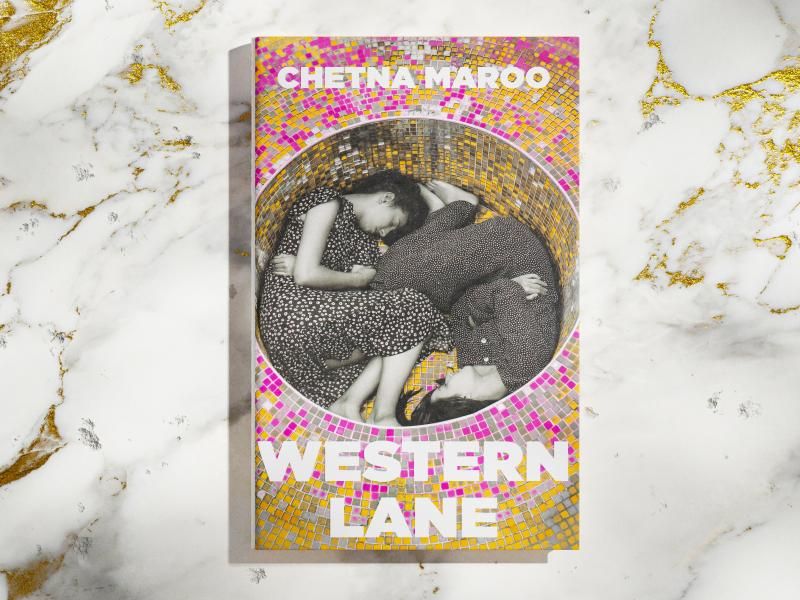
The Opening
What an opening of the 160-page novella ‘Western Lane’ published by Pan Macmillan, which skilfully deploys the sport of squash as both the context and metaphor:
“I don’t know if you have ever stood in the middle of a squash court – on the T – and listened to what is going on next door. What I’m thinking of is the sound from the next court of a ball hit clean and hard. It’s a quick, low pistol-shot of a sound, with a close echo. The echo, which is the ball striking the wall of the court, is louder than the shot itself. This is what I hear when I remember the year after our mother died, and our father had us practicing at Western Lane two, three, four hours a day. It must have been an evening session after school, the first time I noticed it. My legs were so tired I didn’t know if I could keep going and I was just standing on the T with my racket head down, looking at the side wall that was smudged with the washed-out marks from all the balls that had skimmed its surface. I was supposed to serve, and my father would return with a drive, and I would volley, and my father would drive, and I would volley, aiming always for the red service line on the front wall. My father was standing far back, waiting. I knew from his silence that he wasn’t going to move first, and all I could do was serve and volley or disappoint him. The smudges on the wall blurred one into the other and I thought that surely, I would fall. That was when it started up. A steady, melancholy rhythm from the other court, the shot, and its echo, over and over again, like some sort of deliverance. I could tell it was one person conducting a drill. And I knew who it was. I stood there, listening, and the sound poured into me, into my nerves and bones, and it was with a feeling of having been rescued that I raised my racket and served”.
Deeply Evocative and Mesmerising
As per Booker 2023 judges, ‘Western Lane’ is a deeply evocative debut about the tale of a Gujarati family in the 1980s in London, grappling with grief, conveyed through crystalline language which reverberates like the sound “of a ball hit clean and hard…with a close echo.”
‘Western Lane’ is also a mesmerising novel about how silence can reverberate within a family in the aftermath of grief. The story unfolds on a squash court; the reader quickly learns how sport can act as a balm for the living. It is also about sisterhood, and about the love that remains after a devastating loss. The language of the novel is truly something to be savoured. ‘Western Lane’ contains crystalline prose that also feels warm and tender, but which can be a difficult balance to strike.
The book explores with great sincerity and absolute depth of feeling two interrelated universal themes which all of us humans face. One, bereavement is something which we all experience one day in some shape or form, and the second is the complexity of familial dynamics, another universal theme.
A Work of Three Years
In her own words, it took three years for Chetna Maroo to write ‘Western Lane’. In an interview after longlist, she confessed she is a slow writer who writes the first pages in longhand, then types and she usually tries to get each sentence and paragraph sounding right before she moves on, reading and editing from the beginning of the story. She trusts that her work will benefit in the end from the rhythm and slow quality of this attention.
It is Gopi’s World
In ‘Western Lane’, we see the world through the eyes of eleven-year-old Gopi. She and her sisters have recently lost their mother. Their father is bereft and struggling to parent his daughters. At the same time, the girls’ aunt and uncle watch the family, hoping to help the father by taking one of the girls to raise as their own. In Chetna’s own words, when she was writing, she was feeling my way. She didn’t have a plot or outline for the whole novel, but had a sense that the story would turn on this one question: Would Pa bring himself to let one of his daughters go?
It’s fair to call it a sports novel, a coming-of-age novel, a domestic novel, a novel about grief and a novel about the immigrant. While writing, Chetna indeed used her experience of playing squash for many years.
High Praises
Well before Booker shortlisted the novella, Times London wrote “Few novelists write this simply and richly. With this gorgeous debut, Maroo blows most of the competition off the court”. The Guardian added further, “Western Lane feels like the work of a writer who knows what they want to do, and who has the rare ability to do it”. The New York Times, as early as February 7, 2023, described it as a “polished and disciplined debut” where an adolescent girl Gopi mourns the death of her mother in the empty reverberations between points.
To Sum Up
In the true sense, ‘Western Lane’ is what Booker describes it, “tender and moving debut novel about grief, sisterhood, a teenage girl’s struggle to transcend herself – and squash.”.
After I finished reading the incredibly intimate and fierce, unputdownable 160 pages of the novella which began a few days after 11-year-old Gopi’s mother’s funeral, which leaves Gopi and her two elder sisters in the care of their father and ended with her playing the final of the Durham and Cleveland squash tournament, ‘Western Lane’ still lingers in my mind.
Over to November 26
November 26 is the D-day for declaring the winner of this year’s Booker Prize. The vote of both my heart and mind goes to Chetna Maroo. And if indeed that happens, the well-deserving Chetna Maroo eventually wins this year’s Booker Prize, she will become only the sixth debut novelist to win the Booker, after Keri Hulme (The Bone People, 1985), Arundhati Roy (The God of Small Things, 1997), DBC Pierre (Vernon God Little, 2003), George Saunders (Lincoln in the Bardo, 2017) and Douglas Stuart (Shuggie Bain, 2020).
Akhileshwar Sahay, is a Multi-Disciplinary Thought Leader and India Based International Impact Consultant. He is also an independent book reviewer who reviews books for News18 platform. Sahay works as President Advisory Services of Consulting Company, BARSYL. Views expressed in the above piece are personal and solely that of the author. They do not necessarily reflect News18’s views.










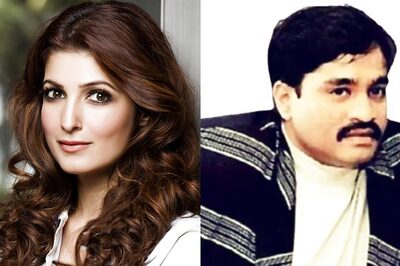





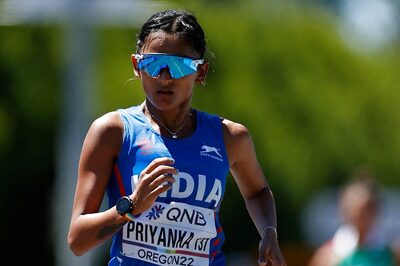
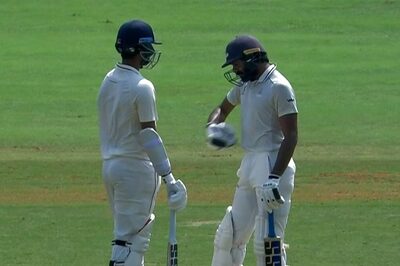
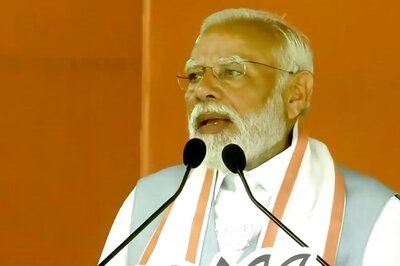

Comments
0 comment